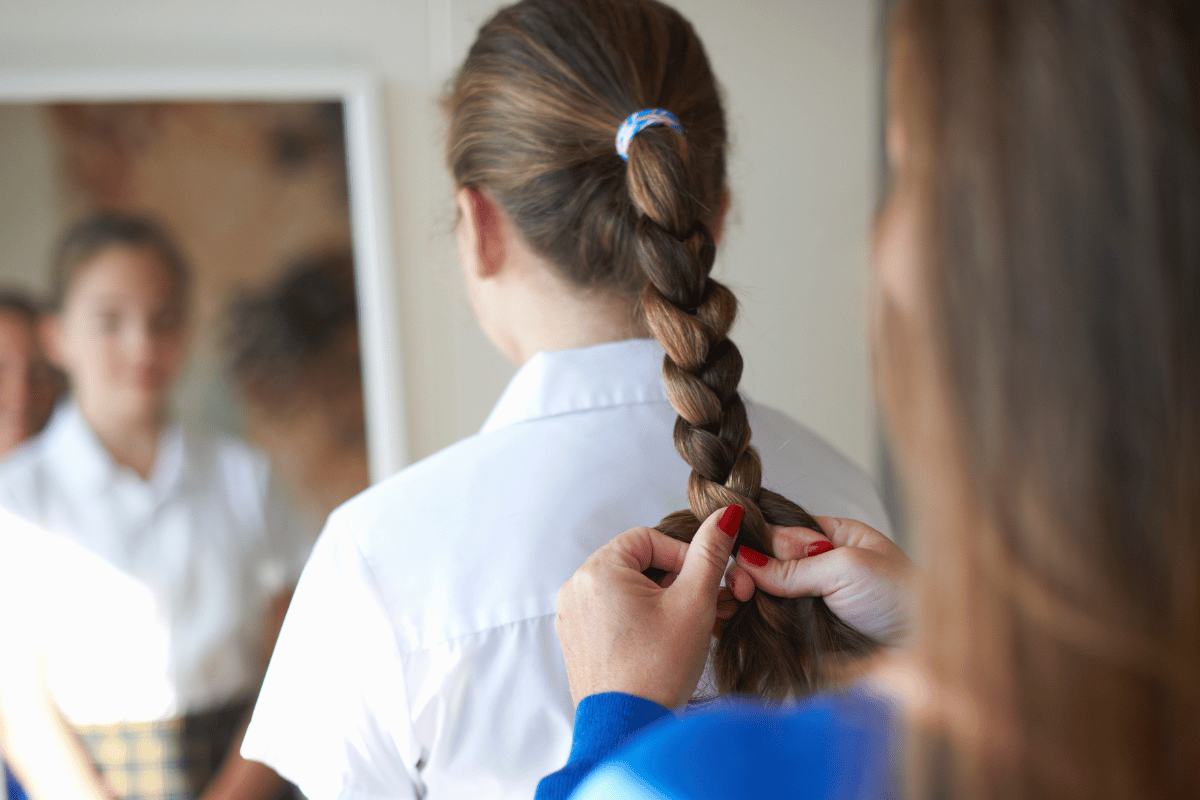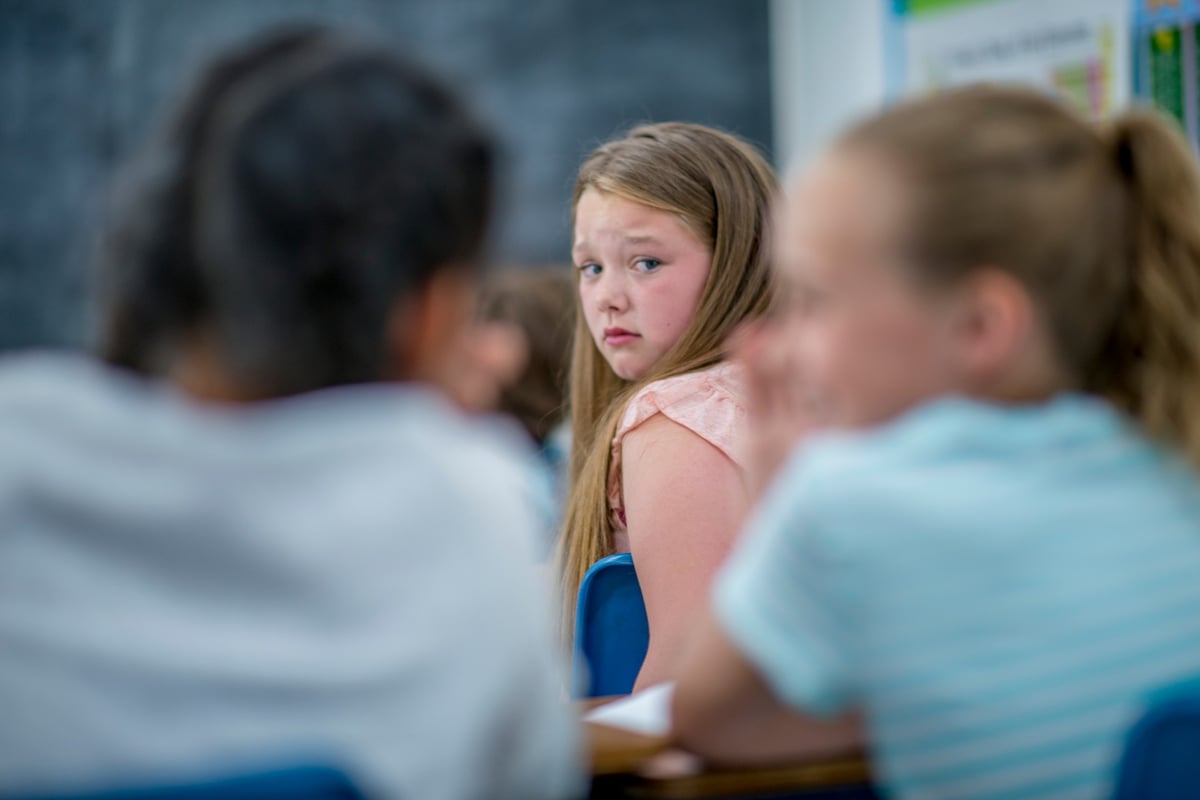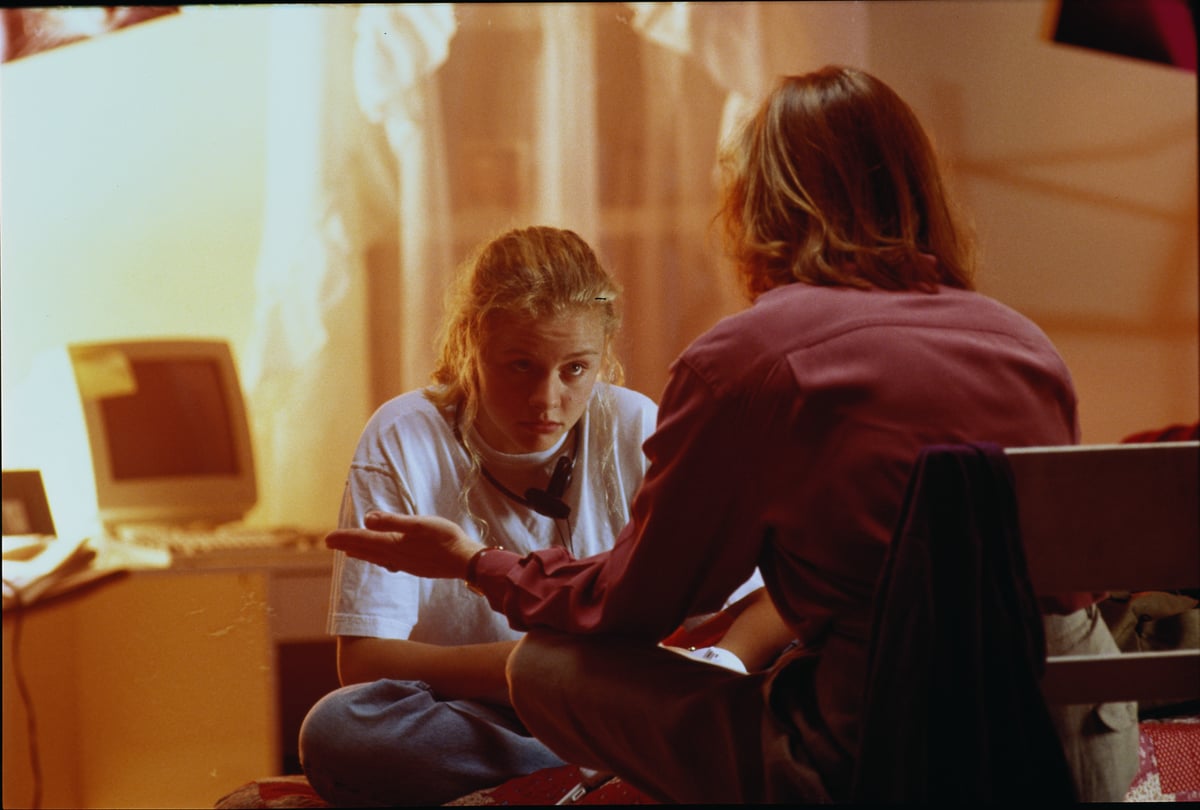
Want to support independent women's media? Become a Mamamia subscriber. Get an all-access pass to everything we make, including exclusive podcasts, articles, videos and our exercise app, MOVE.
The phone rings and on the other end is a 10-year-old, who doesn't want to burden their already-stressed parents. They're being bullied at school.
They sometimes don't want to be here anymore, but mum and dad seem so busy, so overwhelmed already.
So they've chosen, instead, to call a complete stranger.
Scenarios like this are happening across Australia with increasing regularity as the country grapples with the modern bullying epidemic.
Recent data from Kids Helpline shows a rising proportion of calls are coming from children aged 10 to 14 who are experiencing bullying, with some children younger than 10 expressing suicidal thoughts.
Surveys also show that around two-thirds of children aren't telling their parents when they are struggling; instead preferring to reach out to a helpline.
LISTEN: What it's really like to talk to bullied kids. Post continues below.
Leo Hede, National Manager of Kids Helpline, said one of the common reasons children do this is because they don't want to burden already stressed parents.
"That's quite often the case," Hede told Mamamia. "We do hear, 'oh I don't want to tell mum and dad. I don't want them to stress out. They're really busy.'






























































































